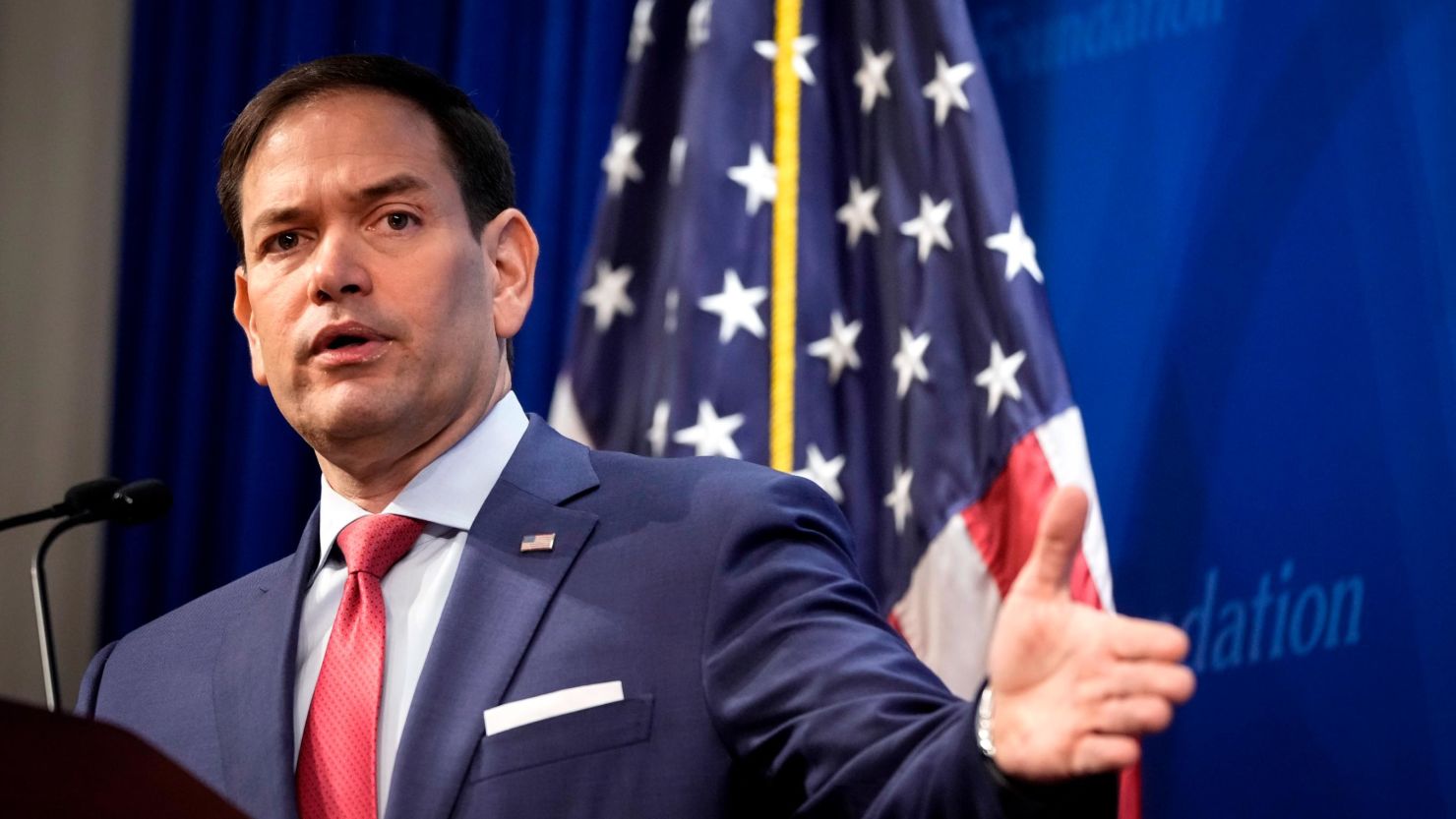Internal Review Sparks Rare Termination Inside the State Department
A U.S. State Department foreign service officer has been dismissed following an internal investigation that drew direct attention from both the Secretary of State and the President. The move, described as “exceptionally rare,” followed the release of covert footage showing the officer discussing an undisclosed romantic relationship with a woman connected to the Chinese Communist Party (CCP).
According to official statements released Wednesday, the officer — identified as Daniel Choi — was found to have violated mandatory disclosure requirements governing foreign contacts. The investigation was initiated after an O’Keefe Media Group (OMG) undercover video surfaced, capturing Choi acknowledging that his partner’s father was “straight-up Communist Party” and that she “could have been a spy.”
The decision to terminate Choi’s employment was authorized under Executive Order 14211, signed earlier this year by President Donald Trump to tighten accountability within the diplomatic corps. It marks the first known instance of a foreign service officer being removed under this new authority.
The Footage That Triggered a Diplomatic Reckoning
The controversy began when OMG released a hidden-camera video showing Choi discussing his personal relationship with a Chinese national whose family reportedly held ties to the CCP. During the recorded conversation, Choi admitted he had intentionally concealed the relationship from his superiors, despite being aware that such disclosure was mandatory under security regulations.
“I defied my government for love,” Choi was heard saying in the video, acknowledging that his partner “could have been a spy.”
While the video quickly circulated online, officials at the State Department moved swiftly to verify its authenticity. The subsequent internal review, led by Secretary of State Marco Rubio, confirmed that Choi had failed to report the relationship — a violation that can be grounds for dismissal even in the absence of proven espionage activity.
A departmental statement issued Wednesday emphasized that “no allegation of espionage has been substantiated,” but that “failure to disclose foreign relationships remains a serious breach of security policy.”
Executive Order 14211 and a New Era of Accountability
The termination was carried out under the framework of Executive Order 14211, a directive signed by President Trump earlier this year. The order reaffirms that all officers serving abroad or in foreign policy capacities must act “under the direction and authority of the President.” It further stipulates that any failure to “faithfully implement” the President’s policy may warrant disciplinary action, including termination.
This authority grants the State Department greater flexibility to address conduct deemed inconsistent with U.S. national security or diplomatic integrity.
A senior administration official noted that “this case demonstrates the seriousness with which the administration is treating security vulnerabilities.”
Officials confirmed that the Secretary’s recommendation for dismissal was personally approved by the President.
A Broader Concern: Beijing’s Influence Operations
Choi’s case has revived longstanding concerns among intelligence and counterintelligence professionals about China’s use of personal and social connections to access sensitive U.S. information.
“Romantic and social connections remain one of the most exploited vectors in Chinese espionage,” said a former senior intelligence official familiar with State Department security protocols. “Even seemingly innocent relationships can be leveraged for influence or information gathering.”
Experts note that Chinese intelligence operations often prioritize cultivating relationships with individuals who hold — or may later obtain — access to privileged information. U.S. government employees, particularly those in diplomatic or defense roles, are considered high-value targets.
For this reason, all foreign service officers are required to report any “close and continuing contact” with foreign nationals, particularly those connected to governments viewed as strategic competitors.
Security Breach or Human Error?
Despite the gravity of the allegations, some observers have urged caution in interpreting Choi’s actions as malicious. Former colleagues described him as “dedicated but naïve,” suggesting that his failure to report the relationship may have been motivated more by personal hesitation than by intent to deceive.
Still, the State Department’s position remains unequivocal: personal motives do not excuse violations of security protocol.
“This is about accountability, not intent,” one official said on background. “An unreported foreign relationship is a vulnerability. It doesn’t matter whether it was motivated by love, fear, or forgetfulness.”
The department’s internal memo emphasized that security rules exist to prevent potential compromise — not to judge personal relationships — and that any lapse “undermines the integrity of the entire system.”
Secretary Rubio’s Response and Future Policy Implications
Secretary Rubio has made countering foreign influence a defining focus of his tenure at the State Department. Since assuming office, he has tightened clearance requirements for employees serving in East Asia, expanded background checks, and strengthened training programs on recognizing foreign influence operations.
Following the Choi case, Rubio directed department leadership to review existing compliance systems to identify any additional vulnerabilities.
“This is a clear case of misconduct and potential compromise,” a senior State Department official stated. “Every officer takes an oath to serve the United States and to uphold our security standards. No one is above that.”
Sources within the department suggested that further disciplinary actions may be considered in similar cases that predate the new executive order.
Political Reactions and Broader Context
While the dismissal itself was administrative, its political context has drawn national attention. Supporters of the administration have praised the swift action as a demonstration of strong national security leadership, while critics have raised concerns about the scope of Executive Order 14211 and whether it grants excessive authority to the executive branch in personnel matters.
Civil service advocates argue that such powers must be balanced against procedural fairness for career diplomats, who often operate in complex international environments where personal relationships may arise naturally.
Others view the case as a cautionary tale — a reflection of how evolving global rivalries now extend into personal and digital spaces.
An Unprecedented Step With Lasting Implications
State Department historians note that the removal of a foreign service officer under a presidential executive order is virtually unprecedented. Traditionally, disciplinary measures for disclosure violations are handled internally through administrative review boards, not through direct presidential approval.
By invoking Executive Order 14211, the administration has effectively set a new precedent for handling cases of potential foreign influence or security noncompliance.
“This case may reshape how future administrations address loyalty and disclosure within the diplomatic corps,” said a policy analyst at the American Security Forum. “It blurs the line between administrative discipline and national security enforcement.”
Unanswered Questions Remain
As of Wednesday, neither Choi nor his legal representatives had issued a formal public statement. It remains unclear whether any criminal or counterintelligence investigation is ongoing.
The State Department has declined to comment on whether Choi’s security clearance has been revoked or if further proceedings are planned.
While no classified material was reportedly compromised, the incident underscores the fine line between personal privacy and professional duty for those serving in sensitive government roles.
The case continues to prompt internal reflection within the diplomatic community — and may influence new guidelines for how personal relationships are handled in high-risk environments.
A Quiet Warning to the Diplomatic Corps
The firing of Daniel Choi may stand as a warning for foreign service officers worldwide. It illustrates the shifting balance between personal freedom and national security responsibility in an era when information, influence, and identity cross borders faster than ever before.
As one senior official summarized: “It’s not just about what you know — it’s about who you know, and whether you tell us about it.”

James Jenkins is a celebrated Pulitzer Prize-winning author whose work has reshaped the way readers think about social justice and human rights in America. Raised in Atlanta, Georgia, James grew up in a community that instilled in him both resilience and a strong sense of responsibility toward others. After studying political science and creative writing at Howard University, he worked as a journalist covering civil rights issues before dedicating himself fully to fiction. His novels are known for their sharp, empathetic portraits of marginalized communities and for weaving personal stories with broader political realities. Jenkins’s breakout novel, Shadows of Freedom, won national acclaim for its unflinching look at systemic inequality, while his more recent works explore themes of identity, resilience, and the fight for dignity in the face of oppression. Beyond his novels, James is an active public speaker, lecturing at universities and participating in nonprofit initiatives that support literacy and community empowerment. He believes that storytelling is a way to preserve history and inspire change. When not writing, James enjoys jazz music, mentoring young writers, and traveling with his family to explore cultures and stories around the world.









